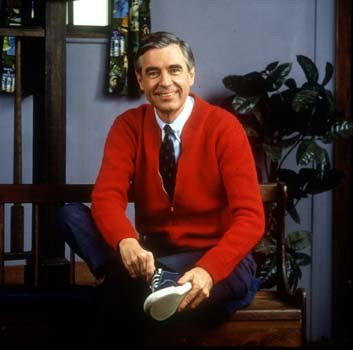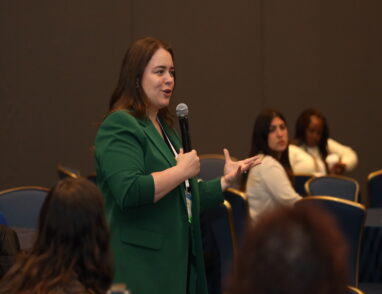PCMH to Specialists: Won’t you be my neighbor?
October 8, 2016 · NCQA Communications
Won’t you be my neighbor? That’s the question Mister Rogers posed to millions of children as he explained over decades that being a good neighbor is all about helping others.

Won’t You Be My Neighbor?
Fast forward to the PCMH Congress in Chicago this weekend where the good neighbor concept also means forming a medical neighborhood to help practices help their patients.
Dr. Robert Gabbay, chief medical officer at the Joslin Diabetes Center in Boston spoke to hundreds attending the PCMH Congress and said being good neighbors in the medical neighborhood involves coordinated care among specialists.
What is a Medical Neighborhood?
According to the Agency for Healthcare Research and Quality, a medical neighborhood is a patient centered medical home (PCMH) and the constellation of other clinicians providing health care services to patients within it. NCQA developed the Patient-Centered Specialty Practice (PCSP) Recognition as a foundation for that constellation surrounding the PCMH. You might say it is the sidewalks between the primary care practices and specialists, all of them focused on delivering patient-centered care and clinical quality through streamlined referral processes and coordination.
Why is it Important?
https://www.youtube.com/watch?v=FHNHbHHpDVc&feature=youtu.be
Dr. Gabbay says NCQA PCSP Recognition is key to achieving coordinated care. “Coordination between primary care doctors and specialty practices doesn’t necessarily happen on its own,” said Gabbay, “as much as primary and specialty practices like to believe there is good back and forth communication about patients, it often doesn’t happen on a regular basis.” In fact, according to Dr. Gabbay as many as half of referring physicians do not know whether their patients actually saw the specialist when they were referred.
Dr. Gabbay says specialty practices with NCQA PCSP Recognition are:
- Committed to coordination of care with primary care clinicians.
- Providing access to care and clinical advice.
- Dedicated to continuous improvement.
Additionally, Dr. Gabbay says PSCP recognition actually makes practices better by providing a road map to care coordination. The PCSP recognition program asks specialty practices to:
- Develop and maintain referral agreements and care plans with primary care practices.
- Provide superior access to care, including electronically, when patients need it.
- Track patients over time and across clinical encounters to assure the patient’s care needs are met.
- Provide patient-centered care that includes the patient and the patient’s family or caregiver in planning and goal setting.
Won’t you be my neighbor?
We all have a pretty good idea of what good neighbors are. You can count on them to pitch in when others are in need. For the sake of patients, Dr. Gabbay is calling for more of us to pitch in and work together.
Primary care practices all over the country have embraced the medical home concept. Tens of thousands of them have earned NCQA Recognition. Now they-and Dr. Gabbay-want more of their specialty care colleagues to join in.
For better coordinated care, they mimic Mr. Rogers mantra, “Won’t you be my neighbor?”








